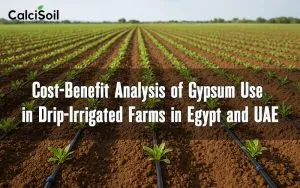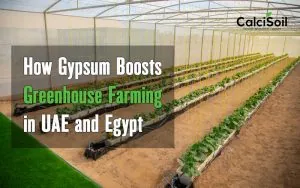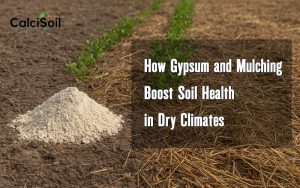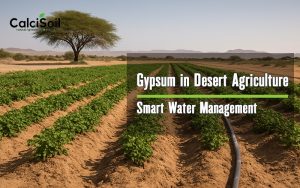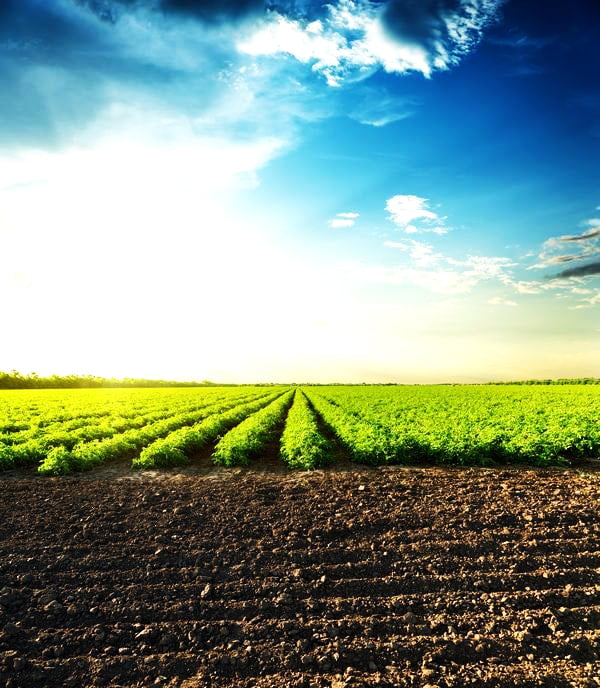
Impacts of Adding Gypsum to Lime-Rich Soils
Gypsum increases the quality of products
Gypsum is one of the best sources of calcium and sulfate for plants. that need calcium, including peanuts, tomatoes, wheat, corn, citrus, and so on. However, calcium deficiency is evident in most calcareous soils. where it is among the leading cause of malformation of many fruits such as tomatoes. The low solubility of lime in calcareous soil will result in the critical concentration of calcium. consequently low availability of calcium to plants.
Calcium foliar spray lends necessary calcium to the plant, but for shoots and aerial organs. because the slow speed of calcium transmission within the plant inhibits calcium from reaching the roots. causing damage to roots under calcium deficiency. Gypsum application is a well-established way to supply calcium to the soil. The moderate solubility of gypsum keeps the calcium concentration of the soil at a normal level for plants. by which the calcium is supplied to plants. The addition of gypsum in rice farms increases the yield of grain by 21%, according to experiments.
Calcium is an essential nutrient for plants. and it plays a key role in many plant processes, including cell wall development, enzyme activation, and nutrient uptake. A deficiency of calcium can lead to stunted growth, poor fruit quality, and other plant health issues. In addition to its benefits for plant growth, gypsum can also help to improve soil structure and reduce soil erosion. It can also help to remediate soils that are contaminated with heavy metals. as gypsum can bind with these metals and prevent them from being taken up by plants.
Gypsum regulates soil pH
Numerous studies have shown that the availability of lime in soils has no terrible impacts on plants. but it raises soil pH by 7.8 to 8.2. At this pH, many plants fail to absorb nutrients. such as phosphorus, calcium, and micronutrients. Furthermore, lime availability in the soil can form hard layers that block the roots from percolation through the soil profile.
Adding gypsum to the soil reduces the pH to the neutral level. that is suitable for the growth and development of most crops and horticultural plants. An alternative technique for pH reduction in alkaline farms is adding ammonium sulfate fertilizer to the soil. Ammonium sulfate supplies nitrogen and sulfur demanded by trees and improves alkaline soils and reduces their pH.

